<< Previous | Displaying results 551-575 of 6769 for "" | Next >>
Jacob, known as "Jaap," and his three sisters grew up in Amsterdam in a religious, Zionist Jewish family that could trace its roots in the Netherlands back 200 years. Jaap attended a Jewish elementary school until the age of 12, and then enrolled in a commercial high school, where he studied accounting. After graduating, he took a position in the Amsterdam Carlton Hotel. He worked there in 1931 and 1932. 1933-39: Jaap's life had been centered mostly in the Jewish community, so the Carlton Hotel was a new,…
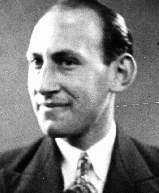
Maria was one of four children born to poor Roma ("Gypsy") parents in the capital of Moldavia in eastern Romania. The family lived in a mixed neighborhood that included Romanians and Roma. Maria grew up in a house with a yard where the family kept a pig and some chickens. Her father made a living by singing and by working at some of the many wineries that dotted the Moldavian countryside. 1933-39: Maria's parents couldn't afford to send her to school. To help make ends meet, Maria, her sister and older…
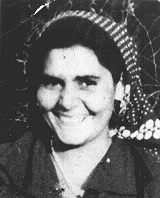
Stefan was born to Romani ("Gypsy") parents in the capital of Moldavia in eastern Romania. The family lived in a mixed neighborhood of Roma and Romanians. Stefan's father made a living playing guitar in local restaurants. As a child, Stefan learned to play the violin and he often performed with his father. 1933-39: When Stefan was a teenager and old enough to branch out on his own, he left his father and teamed up with another young man to perform in restaurants. They performed all over Moldavia. The…
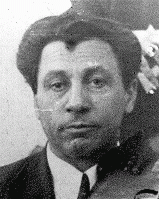
Hansi, as he was called by family and friends, was the third of six children born to Roma ("Gypsy") parents who were Roman Catholic. The family wagon traveled with a caravan that spent winters in Vienna, Austria's capital, and summers in the Austrian countryside. The Stojkas belonged to a tribe called the Lowara Roma, who made their living as itinerant horse traders. 1933-39: Hansi grew up used to freedom, travel and hard work. He was 9 years old and their wagon was parked for the winter in a Vienna…
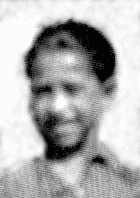
Ceija was the fifth of six children born to Roma ("Gypsy") parents who were Roman Catholic. The Stojka's family wagon traveled with a caravan that spent winters in the Austrian capital of Vienna and summers in the Austrian countryside. The Stojkas belonged to a tribe called the Lowara Roma, who made their living as itinerant horse traders. 1933-39: Ceija grew up used to freedom, travel and hard work. Once, her father made her a skirt out of some material from a broken sunshade. She was 5 years old and…
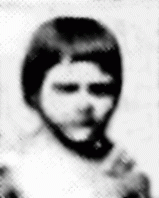
Marie belonged to a tribe of Roma ("Gypsies") called the Lowara Roma who traveled in a caravan and made a living as itinerant horse traders. The caravan spent winters in Vienna, Austria's capital, and summers in the Austrian countryside. When Marie was 18, she married Karl Stojka from the same tribe. Marie's family was Roman Catholic and her ancestors had lived in Austria for more than 200 years. 1933-39: By 1936 Marie had six children. They lived with a caravan, and were used to freedom, travel and hard…
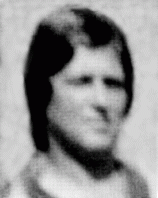
Friedrich-Paul was born in the old trading city of Lübeck in northern Germany. He was 11 when his father was killed in World War I. After his mother died, he and his sister Ina were raised by two elderly aunts. After graduating from school, Friedrich-Paul trained to be a merchant. 1933-39: In January 1937 the SS arrested 230 men in Lübeck under the Nazi-revised criminal code's Paragraph 175, which banned sexual relations between men. Friedrich-Paul was imprisoned for 10 months. In 1938 he was…
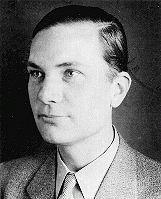
Born Martin Hoyer, Robert took Robert T. Odeman as his stage name when he began a professional career as an actor and musician. A classical pianist, Robert gave concerts throughout Europe, but a hand injury tragically ended his concert career. 1933-39: In 1935 Robert opened a cabaret in Hamburg. One year later the Nazis shut it down, charging that it was politically subversive. Robert then moved to Berlin where he developed a close relationship with a male friend who was pressured to denounce Robert to…
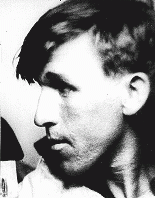
As a young boy growing up in Berlin, Harry developed a love for the theater. At 15 he began acting in minor roles at a theater at the Nollendorfplatz. He was also apprenticed to a hairdresser but disliked the work. He spent most of his time with other actors, both at the theater and in nightclubs where gay men gathered. 1933-39: When the Nazis came to power, they closed the gay bars. Some gay men, especially those who were Jewish, were killed by Nazi sympathizers; Harry's friend "Susi," a drag queen, was…
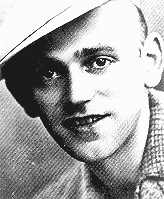
Karl was born in the north German port of Hamburg. His father was American, and his mother was German. Soon after Karl was born, his father returned to the United States and a little later, his parents were divorced. Karl left school when he was 14 and worked as a shop apprentice. 1933-39: In 1935 an informer told the police about Karl's secret meetings with a 15-year-old youth, and he was arrested under the criminal code's paragraph 175, which defined homosexuality as an "unnatural" act. Though this law…
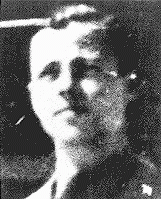
Karl was born in the small town of Bad Zwishenahn in northern Germany. When he was 2, his family moved to the port of Bremerhaven. His father was a sailor and his mother became a nurse in a local hospital. After his father died, Karl continued to live with his mother. Karl was 20 when he began training as a deacon at his parish church. 1933-39: Karl was 26 when his jealous lover denounced him and he was arrested at his house under Paragraph 175. Paragraph 175 was a statute of the German criminal code that…
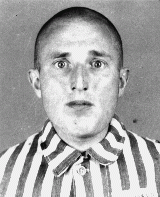
Dezso was from a Jewish family in Hungary's capital, Budapest. His father had been a violinist. Dezso earned a university degree in English, and became a language teacher. He wrote a number of high school grammar textbooks. In 1914 he married Iren Hajdu, who was a mathematician. The couple had two children; a daughter, Eva, born in 1918, and a son, Pal, born seven years later. 1933-39: Dezso fears for the worst now that the antisemitic Prime Minister Teleki has taken power again. Nineteen years ago, in…
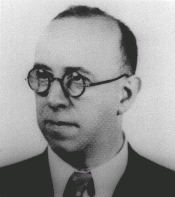
Kornelia was known as Nelly. She was the older of two daughters raised by Jewish parents in the Hungarian capital of Budapest. Her father fought in the Hungarian army during World War I. Kornelia attended public school and later worked as a bookkeeper for a soap factory. In 1928 she married Miksa Deutsch, a businessman who sold matches. 1933-39: Kornelia's husband was religious and the Deutsches' three children attended Jewish schools. Miksa and his brother were the sole distributors in Hungary of…
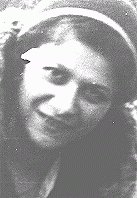
Klara Gottfried Reif's parents, Herschel and Ethel Gottfried, owned a flour mill and a general store in a small Polish town. Klara could speak five languages. As a young woman, she took an interest in fashion, and enjoyed travelling. On a trip to Vienna, she met Dr. Gerson Reif, a young dentist. After marrying in 1925, the couple settled in Vienna and the first of their two children was born in 1927. 1933-39: After the Germans annexed Austria in 1938, they effectively prevented Jewish dentists from…
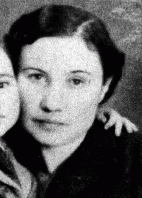
Liane's Polish-born Jewish parents were married in Vienna, where they lived in a 14-room apartment in a middle-class neighborhood near the Danube River. Liane's father, a dentist, had his office in their home. 1933-39: After Germany annexed Austria in 1938, Liane's father was found dead, a probable suicide. In May 1939, four months before war broke out, her mother booked passage on the St. Louis, a ship bound for Cuba. But Cuban authorities turned the ship back. Along with some other refugees from the…
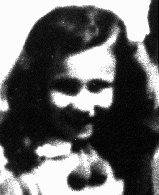
Valtr was the fourth of six children born to Jewish parents in a small Moravian town, where his father ran a dry-goods and clothing store. The Krakauers spoke both Czech and German at home. Valtr attended German-language schools and also played soccer for the Maccabi Jewish team. After graduating from secondary school, Valtr enrolled in a fashion-design school in the city of Brno. 1933-39: In Brno, Valtr founded a factory that produced ready-made clothes. He closely followed the rise of Nazism in Germany…
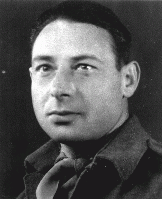
Leo's Jewish family lived in Vilna, which in 1913 was part of the Russian Empire. In 1916, fearing revolution, his family left for Harbin in northern China, a city with a well-organized Jewish community. There Leo joined a Zionist group and studied Jewish history, and for two years attended a Jewish primary school and learned Hebrew. He then studied at a Russian secondary school in Harbin. 1933-39: When Japan occupied Manchuria in 1931 and conditions in Harbin deteriorated, Leo's parents sent him to…
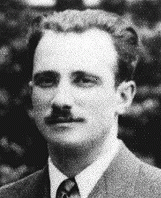
The younger of two children, Irene was born to Jewish parents in the industrial city of Mannheim. Her father, a wounded German army veteran of World War I, was an interior decorator. Her mother was a housewife. When the Nazis came to power in 1933, Irene's older brother, Berthold, was attending public school. Three-year-old Irene was at home with her mother. 1933-39: Celebrating Jewish holidays with all of Irene's aunts and uncles was really nice. One of her favorite places was the zoo; she especially…
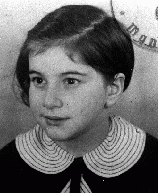
Yennj and her husband Heinrich were two of a few Jewish residents in Ruchheim, a small town in the Rhine River valley. Yennj helped Heinrich run their dry goods store that was on the first floor of their house. In the summer she liked working in the garden out back. Their son, Kurt, had immigrated to America after World War I. Ida, their daughter, helped them in the store until she married. 1933-39: The Nazis have come to power, and many Jews have decided to leave Germany. Yennj and Heinrich's niece,…
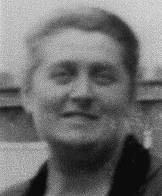
A Jewish merchant, Heinrich ran a dry goods business with his wife, Yennj, in Ruchheim, a small town in the Rhine River valley. Their son, Kurt, had immigrated to America after World War I. Their daughter, Ida, had helped them in the business until she married. The Baehrs' store took up the first floor of their comfortable two-story brick house. In the summer, they enjoyed their garden in the back. 1933-39: The Nazis have come to power, and many Jews have decided to leave Germany. Heinrich and Yennj's…
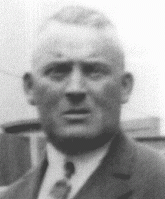
Ida was born to Jewish parents who owned a dry goods store in a small town in the Rhine River valley. As a teenager, Ida loved to bicycle with her cousin, Luise, in the scenic valley. After graduating from school, Ida helped her parents run the store. When she was in her early twenties, she married Fritz Lang, who owned a dry goods store in nearby Lambsheim, where they lived. 1933-39: Ida and Fritz have hired a housekeeper to help take care of their new baby girl, Freya, while Ida works in the store. More…
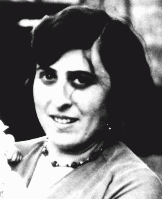
Kalman was one of seven children born to religious Jewish parents in the town of Tarnow. He attended public school in the morning and religious school in the afternoon. Kalman's father owned a factory that manufactured kosher soap, sabbath candles and candles for church altars. The Goldbergs lived above their factory, which was located in a predominantly Jewish neighborhood. 1933-39: The Germans occupied Tarnow on September 8, 1939. The next day, they burned the synagogues. One synagogue, built of stone…
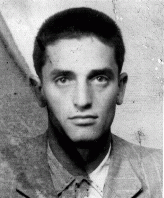
Rozia was the second-oldest of nine children born to religious Jewish parents in Starachowice, a town in east-central Poland. Their small one-story house served as both the family's residence and their tailor shop. The tailoring was often done in exchange for goods such as firewood or a sack of potatoes. Rozia worked in the shop sewing women's clothing. 1933-39: Rozia married a Jewish tailor from Radom, a large town some 60 miles south of Warsaw. The couple settled in Starachowice, and they ran a tailor…
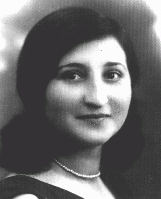
Ita was the second-youngest of nine children born to religious Jewish parents in Starachowice, a town in east-central Poland. Their small one-story house served as both the family's residence and their tailor shop. The tailoring was often done in exchange for goods such as firewood or a sack of potatoes. Ita often helped her mother with chores around the house. 1933-39: Ita's father died at home on a Saturday in June 1939, shortly after returning from synagogue. He had lain down to rest, when suddenly…
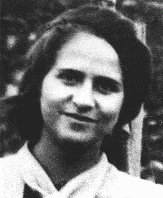
Chuna was born in a small one-story house that served as both his family's residence and their tailor shop. He was the youngest of nine children born to religious Jewish parents. The family's tailor shop mostly served Starachowice's Catholic Poles. The work was often done in exchange for goods such as firewood or a sack of potatoes. 1933-39: Chuna's father died unexpectedly in June 1939. After returning from synagogue one day, his father lay down to rest. He asked Chuna to close the shade to darken the…
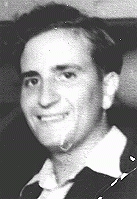
We would like to thank Crown Family Philanthropies, Abe and Ida Cooper Foundation, the Claims Conference, EVZ, and BMF for supporting the ongoing work to create content and resources for the Holocaust Encyclopedia. View the list of donor acknowledgement.